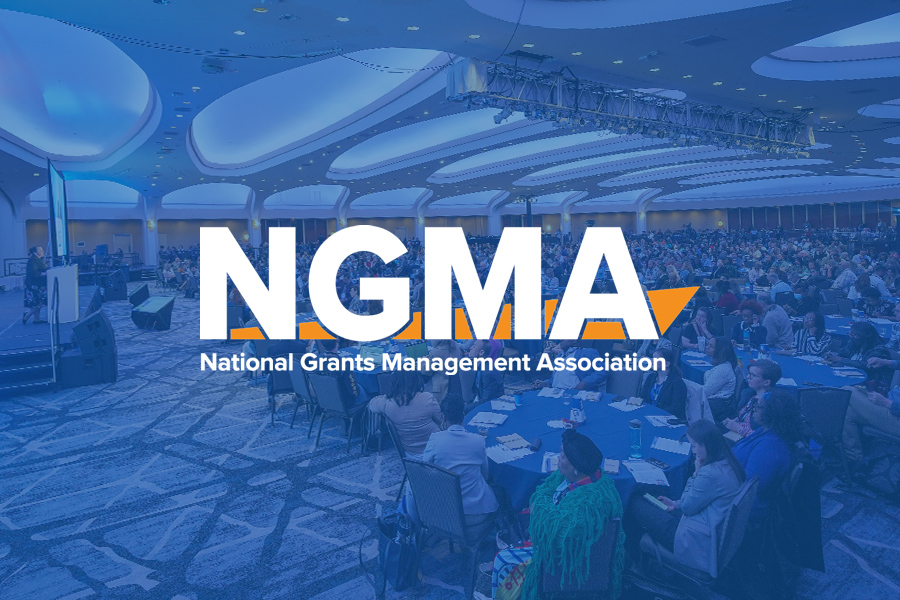In December 2022, NGMA hosted a webinar presented by Mara Ash entitled “What Do You Need in Your Grant Procurement Solicitations to Ensure Your Procurement is ‘Finding Proof?’” Below are the key takeaways from her presentation. Missed the live webinar? Past webinar recordings are available to members at no cost here.
There is so much going on in grants these days. Trillions of federal dollars have been awarded and more funding is on the way. More money means more projects, more purchases and more ways to get into trouble.
Procurement is the largest area of questioned costs in grants. The amount of information out there can be overwhelming and confusing. So where do you start?
Know Your Requirements
Yes, we always say you need to know your requirements. But how do we know which requirements are applicable? Well, you can start with 2 CFR 200, Uniform Guidance, which applies to all grants. There may be some exceptions to 2 CFR 200, and that will be in your terms and conditions related to your grant. Your terms and conditions can have additional requirements on top of 2 CFR 200. Here’s what we recommend: Take all of your requirements and create a compliance matrix to determine the requirements and which requirement trumps another requirement. As a rule of thumb, the terms and conditions of your grant will lay out which requirement takes precedence.
- For local and nonprofits:
- 2 CFR 200 from §200.318 to §200.327
- For state entities and quasi-state entities:
- §200.317 + §200.321, §200.322, §200.323
- Local policies:
- Must comply with all local, state and federal laws, rules and procedures.
- Do not need to have a separate policy for grant procurements; however, you should consider what needs to happen differently for grants.
- Terms and conditions of the grant:
- Search for specific terms related to purchasing.
Documenting Grant Procurements
What is considered grant documentation? Well, everything in the procurement process, from your procurement policy to the vendor execution.
You don’t need to have a separate policy for grant purchases; however, you do need to understand how grant procurements are different and they must be addressed. This difference needs to be documented. The policy and this documentation get your procurement started right. Policies must reflect how purchases are made, from advertising to selection for both formal and informal purchases. Federal grantees are encouraged to use “schedules” or “co-ops” which are procurement methods performed by one agency for use by multiple agencies. Schedules and co-ops reduce burden, cost and time to selection.
Grantees must document the selection process as well as the procurement. This includes who was on the selection committee, how they scored, i.e. rubric, and how the vendor was selected. Remember to add the grant terms and conditions to your solicitation and award. This ensures your vendor will meet your grant requirements as well as ensure the project will get done on time, in-budget, and in-scope.
Boom! Procurement Done!
I’m finished now, right? No. Now begins the fun of post-award monitoring. Why is that important? Well, a good monitoring program will allow you to ensure procurement costs are allowable, especially when the grant procurement is part of forced accounts. Post-award monitoring should be done at a level to reduce the risk of non-compliance, poor performance or risk of not completion. When monitoring, don’t forget to verify all terms of your contract are being performed and integrated by your vendor.
Hot Tips!
Does the procurement documentation tell the complete “story” of the procurement – from the initial invitation to the award of the contract? Every part of the process should be documented. If you didn’t document it, it didn’t happen. Below is a quick list of things to check.
- Federal, State and Local Procurement Compliance
- Is the procurement consistent with your entity’s procurement policy?
- Is your entity’s procurement policy compliant with federal and state procurement compliance?
- Allowable Costs and Cost Principles Compliance
- Are costs allowable as per the grant terms?
- Are costs consistent with the 2 CFR 200 cost principles?
- Devil in the Details
- Keep detailed documentation about everything from the scope of work to the selection.
- Document post-award monitoring and how you as a “responsible” grantee are mitigating the risks posed by vendors.
- Perform self-assessments regularly through either internal audits or regular reviews to ensure you are following your procedures and the procurement was compliant with federal, state and local policies, as well as grant terms and conditions.
- Um, I Still Need Help!
- Managing grant and all the requirements:
- nnnThere are many consultants out there. Using a consultant doesn’t mitigate your requirements. The biggest bang for your buck is a good compliance matrix so you can check and double-check as you go along.
- Outsourced and co-sourced post-award audits:
- You don’t need a certified accountant for this work. These can be performed under GAGAS or Internal Audit standards.
- Preaudit assessments:
- Before the auditors arrive on your doorstep, perform a pre-audit assessment. This will help you understand what or where you are deficient in your processes as well as the opportunity to fix them before the auditor shows up. You can do this on your own or hire someone to help!
- Managing grant and all the requirements:
Mara Ash is the CEO of BFS Strategic Partners, a client-focused management and consulting firm. She has over 25 years of financial management, compliance, audit and consulting experience serving all levels of government and nonprofit organizations.

